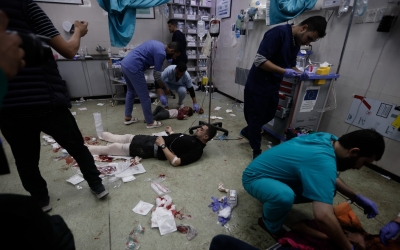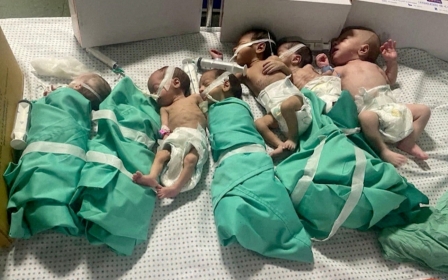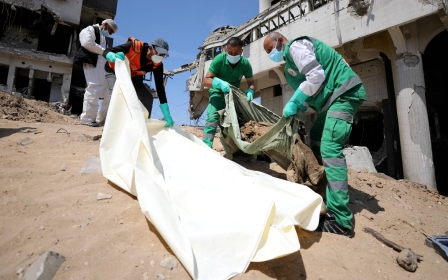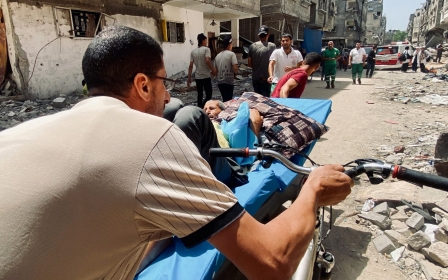27 people trapped in northern Gaza hospital as Israeli siege continues
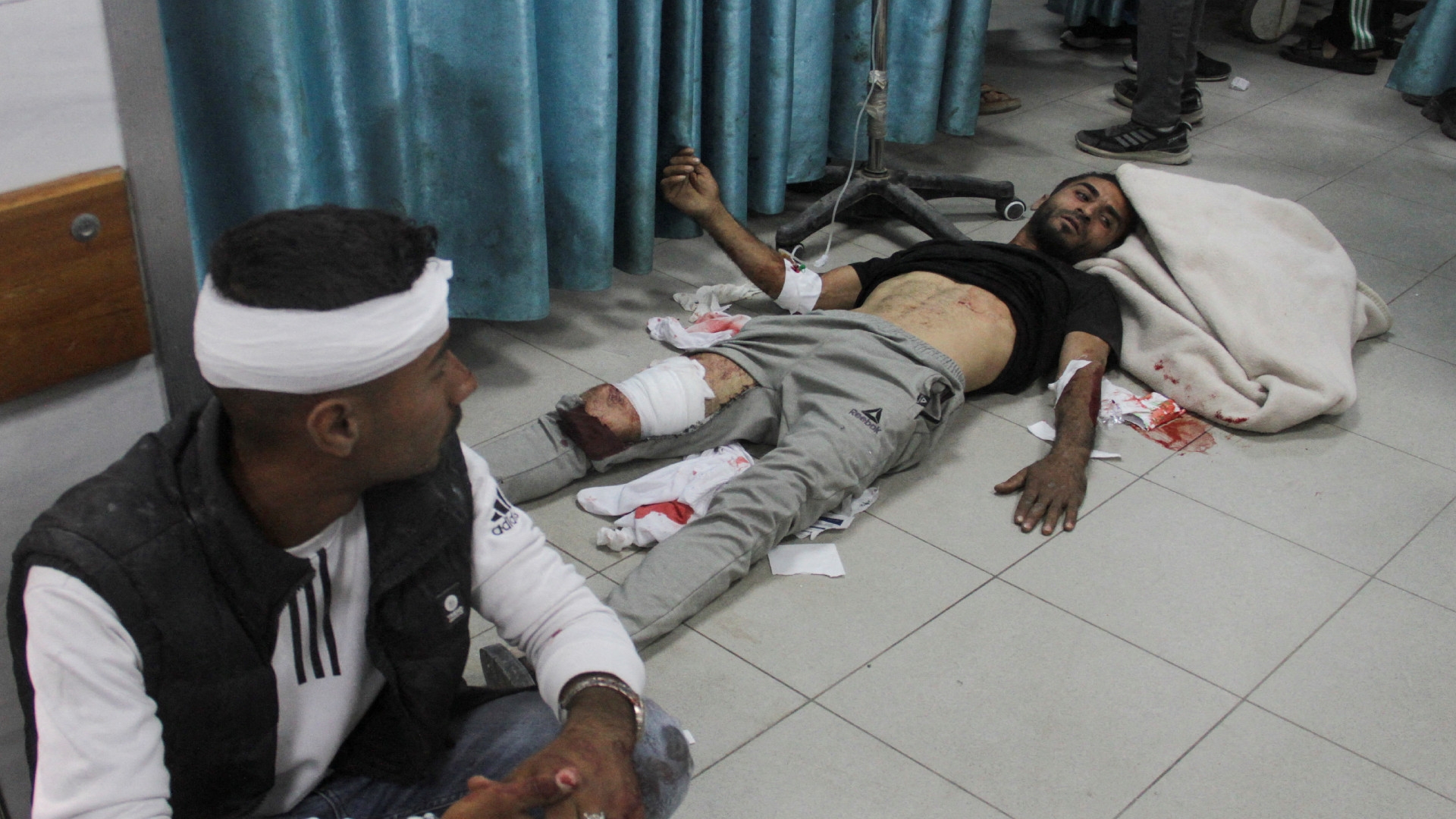
Twenty-seven staff and patients, some requiring orthopaedic surgery, are trapped at al-Awda hospital in Jabalia amid a six-day Israeli siege.
Al-Awda hospital, one of the last remaining hospitals in northern Gaza, is the only facility in the area offering maternity and orthopaedic surgery care.
After a four-day blockade, Israeli forces reportedly ordered staff and patients to evacuate via a loudspeaker and then stormed the complex.
The hospital’s director, Mohammad Salha, and 15 other medical staff refused to leave without ambulances to transport their 11 patients.
“If we evacuate, these patients will be lost. They will not get the health services they need. Some of them have open wounds, others are in need of orthopaedic surgery,” Salha explained in a voice note on Thursday morning.
New MEE newsletter: Jerusalem Dispatch
Sign up to get the latest insights and analysis on Israel-Palestine, alongside Turkey Unpacked and other MEE newsletters
“This is the only hospital able to provide such surgery. Al Shifa hospital is out of service, so where do they have to go?”
Among the patients trapped at the hospital were two women and their newborn babies, delivered by caesarean section. Both were evacuated to Gaza City on Thursday.
One of the women, Abira, had spent three days in labour at Kamal Adwan hospital before she was transferred to al-Awda for an emergency caesarean section when Kamal Adwan was being bombarded.
Despite heavy artillery shelling, she managed to reach al-Awda safely and had a successful caesarean delivery. However, just 15 minutes later, Israeli forces laid siege to the hospital.
“I cannot communicate with anyone,” she said via voice note. “We don’t have proper medication here, nor decent food.”
Another woman, Kayla, said: “I have nothing prepared for myself or my baby... I have no means of communication with my family to tell them that we’re fine. I don’t know what to do.”
Not enough medicine
Access to the hospital has been blocked by Israeli forces, with supplies of fuel, food and medicine drying up.
“The little medicine we have is not enough. We have some medicine and medical equipment in the hospital store, but we cannot get there. It’s only 40 metres away, but there is an Israeli sniper close by,” Salha said.
Salha reported that the hospital received its last small fuel delivery from the World Health Organisation (WHO) over a month ago, and due to sniper fire, no deliveries can now reach the building.
Members of the staff use a small generator for a couple of hours a day to charge batteries and have been forced to relocate all patients to the emergency department to save energy.
The hospital has also run out of clean water, with the remaining staff and patients resorting to drinking rainwater.
According to Salha, Israeli forces destroyed the hospital’s filter system two months ago, so the staff and patients are completely dependent on companies and organisations delivering fresh water.
“We have food for [a maximum of] 10 days, with two meals per day. We are now thinking of cutting back, giving only one meal per day,” Salha said.
A disaster for orthopaedic patients
Salha warned that the collapse of al-Awda would be a “major disaster for the whole north of Gaza”, especially for patients requiring orthopaedic surgery.
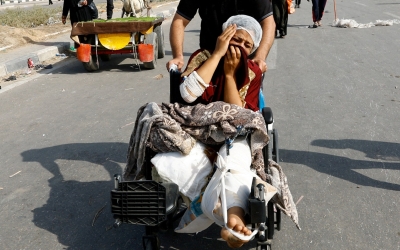
Al-Awda previously faced an 18-day siege by Israeli forces in December 2023, during which several medical workers - including a Medecins Sans Frontieres surgeon - were shot by Israeli forces.
Salha said that when the siege was lifted, the hospital was inundated with patients with infected wounds.
“We were obliged to perform lots of amputations because people did not receive the proper care [in time]. The same story for the pregnant women with difficult pregnancies,” Salha said.
Al-Awda is one of the two remaining hospitals still functioning in northern Gaza, along with Kamal Adwan Hospital.
Kamal Adwan’s emergency department was struck by an Israeli missile on Sunday, forcing staff and patients to evacuate.
The WHO representative in occupied Palestinian Territory, Richard Peeperkorn, warned: “These are, these were functional hospitals. We cannot afford to lose them.”
Middle East Eye delivers independent and unrivalled coverage and analysis of the Middle East, North Africa and beyond. To learn more about republishing this content and the associated fees, please fill out this form. More about MEE can be found here.


